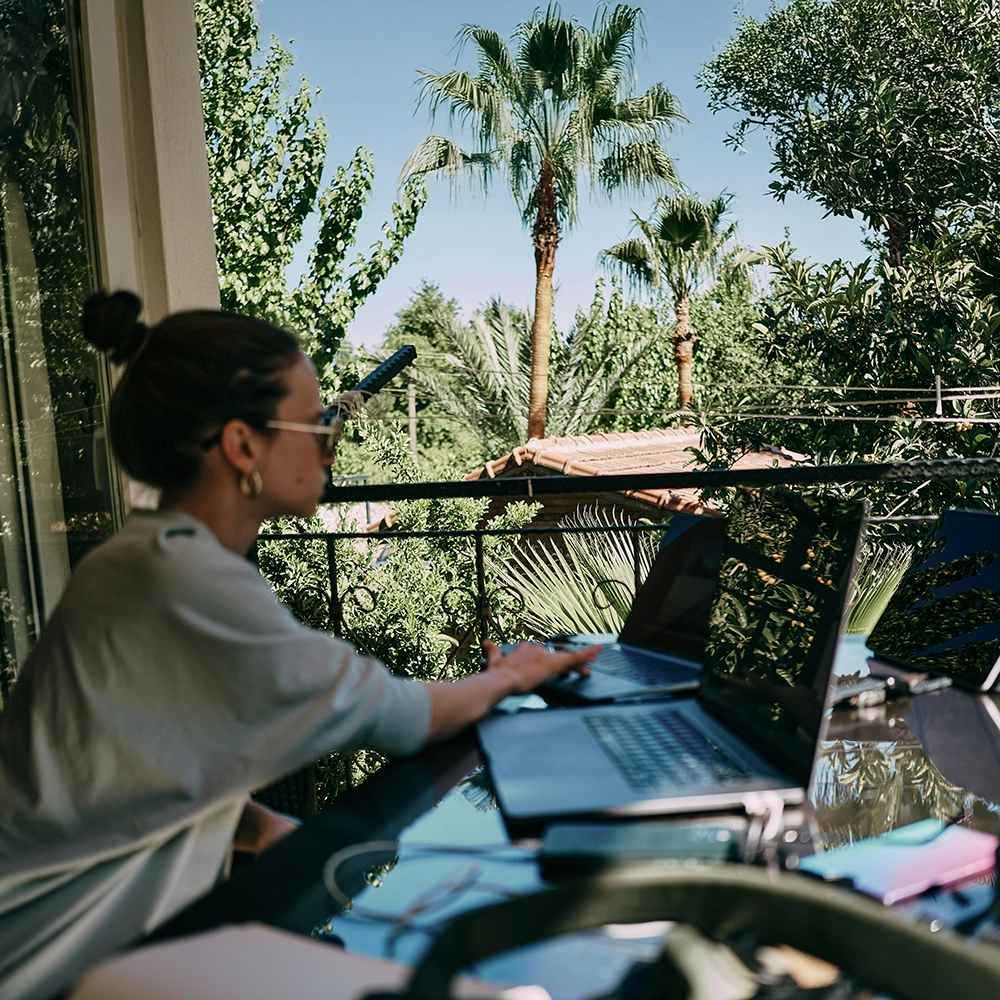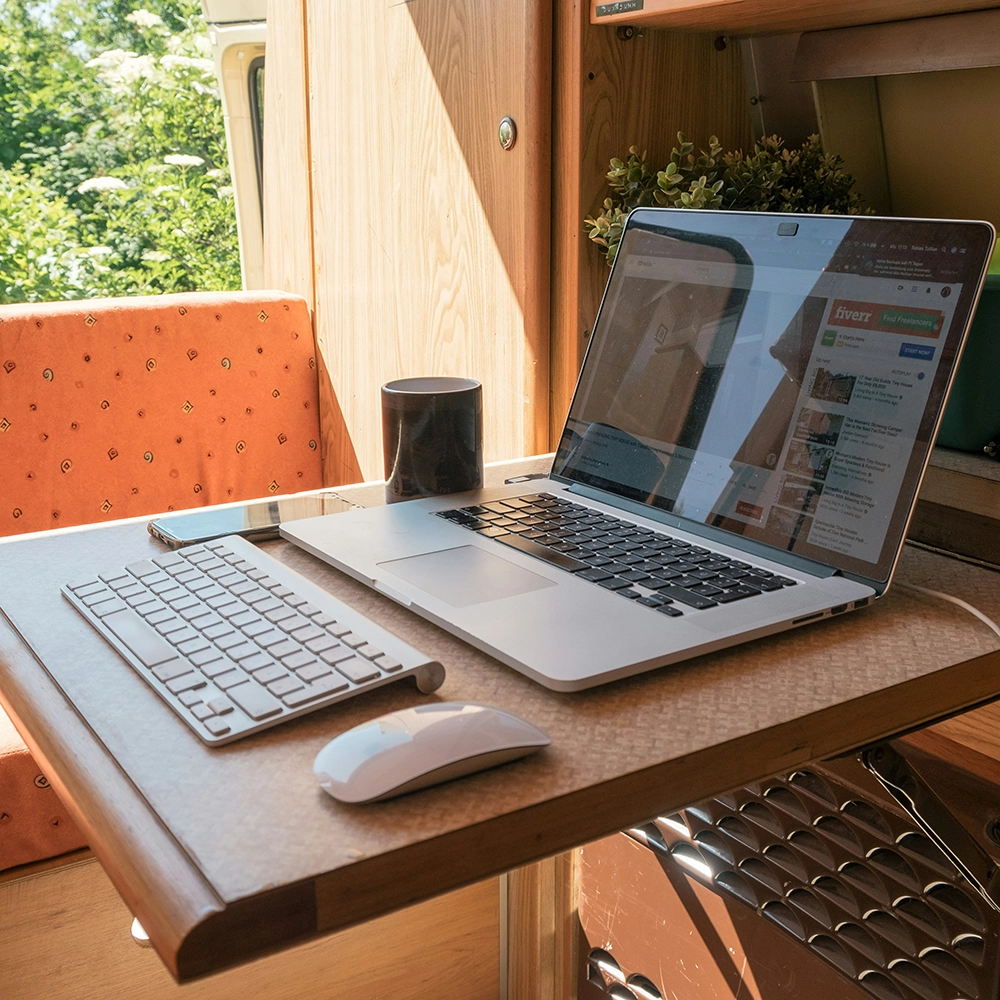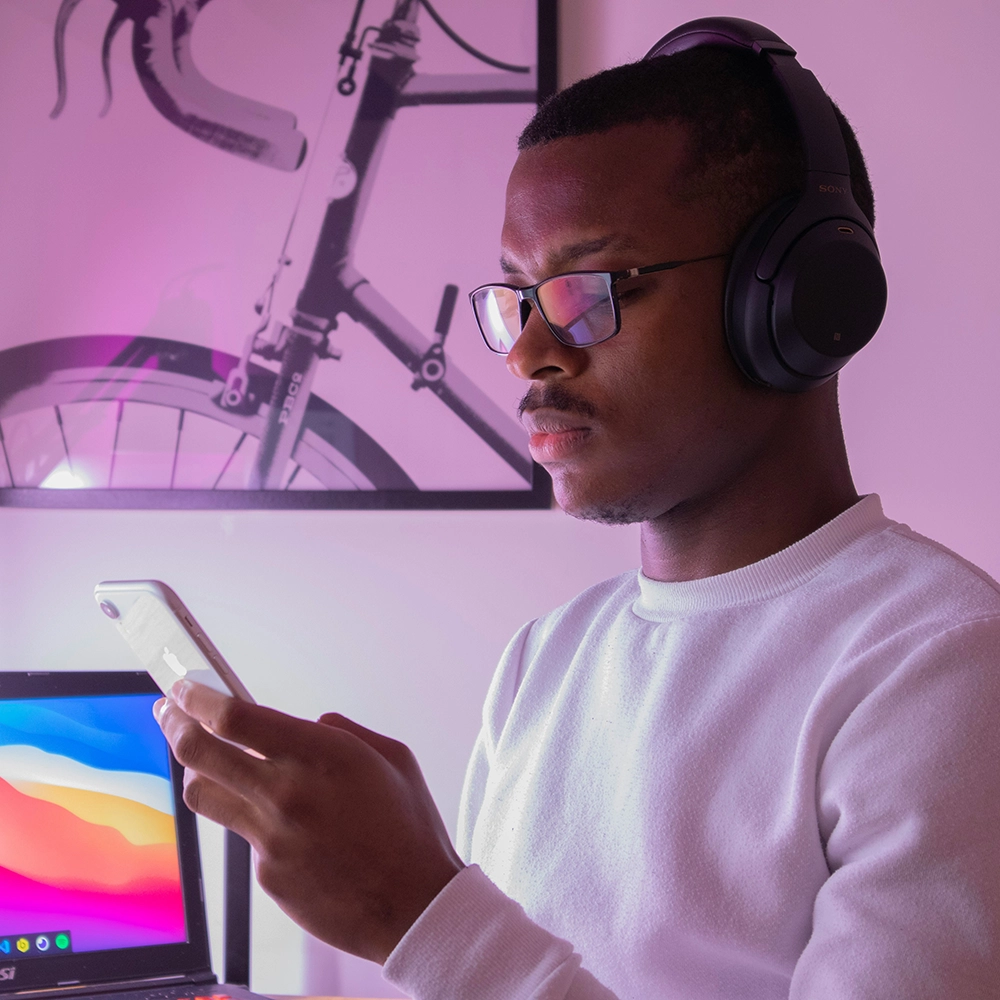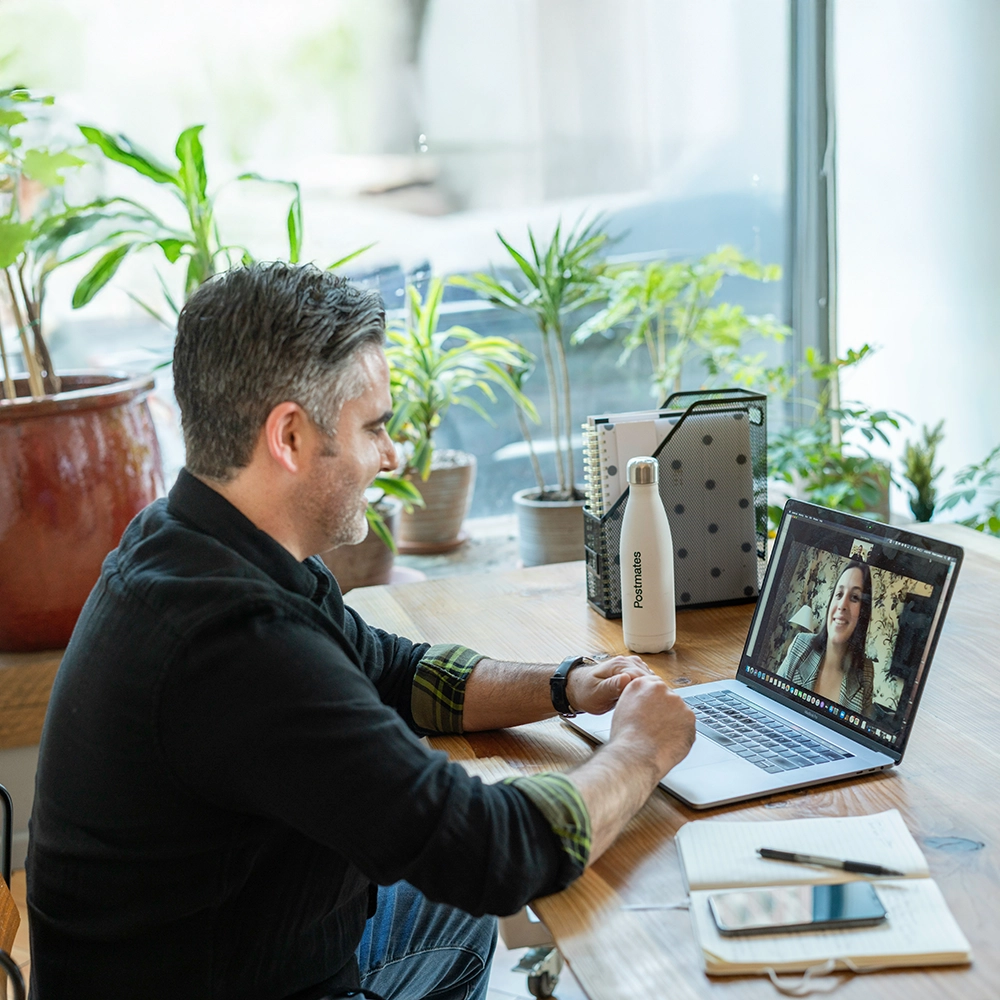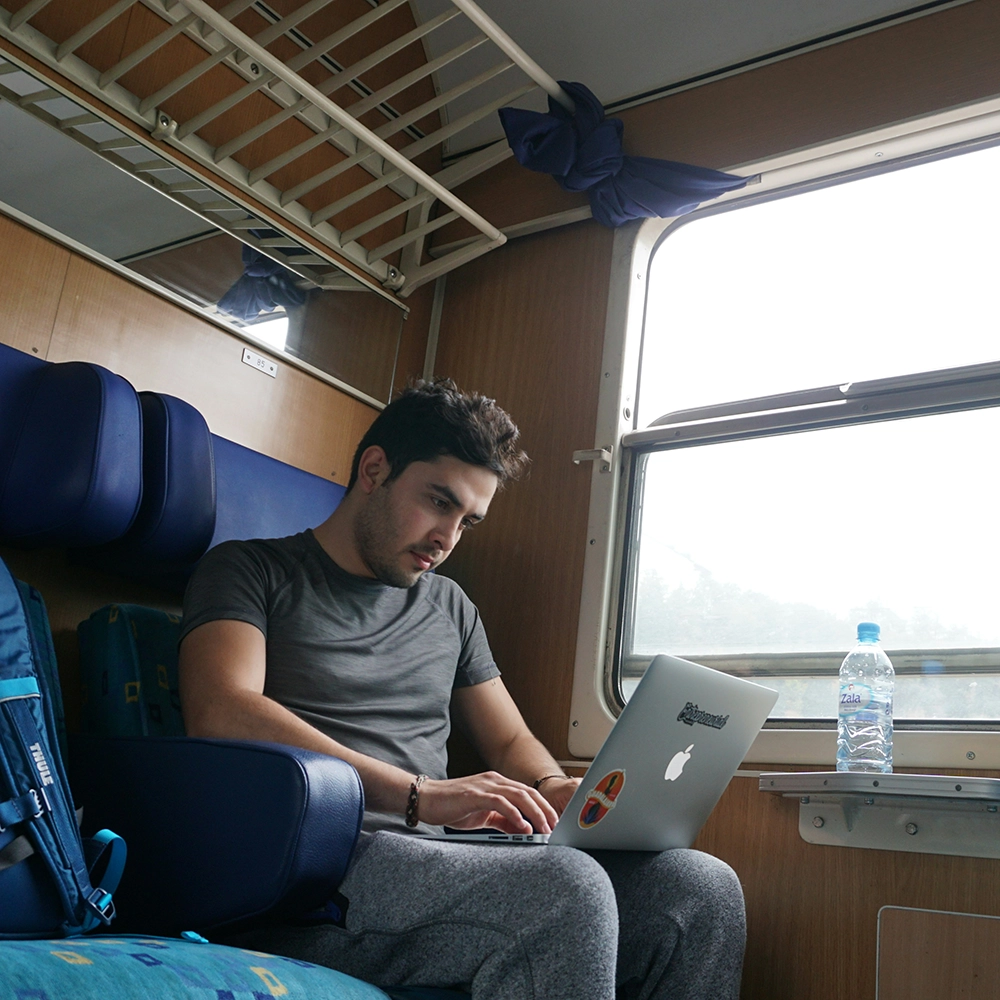Working as a digital nomad can seriously transform the view from your cubicle. But how can you manage the temptation to vacation when you have work to do? With careful balance and planning, you can enjoy all the freedom that comes from working remotely in different locations while delivering on your commitment to your work and teams.
Perks of Being a Digital Nomad
There is massive debate around the effectiveness of remote work. Although the final conclusion varies, there are some definite benefits to being able to work from anywhere.
More freedom and control
Being a digital nomad can give us a greater sense of freedom. It can give us more control over our lives and careers. This is especially common among people who feel listless or increasingly dissatisfied with their job.
Opportunity to see new places
Whether you choose to be a long-term digital nomad in one location or hop from one destination to the next, you have the joy of experiencing and immersing yourself in a new place.
Greater creativity
A change of location can help us look at the world around us with new eyes. This different perspective often helps us tap into our creativity, whether you need an innovative technical solution or unique art.
Fewer office distractions
People who say they’re more productive at home than in the office often cite distractions like watercooler gossip or co-workers dropping by their cubicle constantly. Of course, working from home can have its own distractions (family, pets, etc.), but it might be harder to manage the office distractions for some.
Downsides of Being a Digital Nomad
Being a digital nomad conjures up some romantic visions of traveling indefinitely while never having to worry about being gainfully employed. The reality can be a little less rosy.
A Joblist survey (which included people working from home, not just digital nomads) reported that 53% of remote workers find it harder to separate their personal and work lives. About 24% feel more alone working remotely. And 21% felt that their mental health had decreased since working remotely.
Some of those challenges are influenced by a change or lack of support systems when you move to an unfamiliar place. They might also be impacted by distractions and an inability to manage them effectively.
Some of the most common distractions for remote workers include being surrounded by other interests or hobbies (a big temptation to a digital nomad in a new destination just asking to be explored), social media and phones always at hand, and the people and pets they live (and now work) with. Household chores and unreliable internet and power also make the list.
The 10 tips below won’t remove all distractions, and we won’t claim that they’ll improve your mental health. But they can help you stay focused while working remotely.
Prepare to be productive.
How to Avoid Distractions While Working Remotely
1. Create a priority list.
First, know what your priorities are for the experience. There’s a reason you’ve decided to make the big jump to working remotely as a digital nomad.
Make a priority list for those reasons. Is it to experience a new culture? Learn a new language? Be your own boss? Figure out what you want to be “when you grow up”? Knowing what matters most to you and what you most want out of the experience will give you clearer direction for what to say “no” to and when to shout a resounding “yes.”
Second, make a daily or weekly priority list. Identify the tasks you have to get done, whether that’s meetings, reports, designs, or whatever else brings in a paycheck. Next, write down the other tasks and nice-to-haves. These are things with more flexible deadlines or personal goals, such as attending a conversation course or even visiting a nearby town that looks cool.
Then prioritize those tasks. It will be easier to stay focused when you know what’s most important and have clear goals. And don’t forget those personal goals. While they might not be part of your job, it’s important to schedule time for yourself, too.
2. Know what distracts you.
This might require a little soul searching and mindfulness. Start by figuring out what types of situations are most distracting to you.
For me, it’s noise. Working in a cafe is rarely a good plan for me with all the chatter of other people, and the whirring and popping of coffee machines. Your trigger might be too much quiet, when your mind starts to drift. For someone else, it could be other people who tempt them to start a conversation.
This is also a good time to be honest with yourself about your environment. Will you really be able to focus on that spreadsheet while sitting in a beach chair? If so, put on some sunscreen before diving into those numbers. But if you know that you'll be distracted by the blue sea, don’t put yourself in that position as it will only cause stress.
3. Work during your most productive hours.
This tip is a little tricky when you work remotely in a different time zone than your clients or the rest of your team. Your productive hours might be completely opposite of when everyone else is hard at work.
If it’s possible, though, know when you work best and plan your days around that. You can figure this out before you even leave home; your working style isn’t likely to change just because your location has.
4. Schedule the hard stuff for when you’re at your best.
A lot of productivity experts say to do your most challenging tasks first. I find this helpful if the challenge is overcoming procrastination; just knock it out already! But if you aren’t productive in the morning, then doing the hard things as soon as you get to your desk might be setting yourself up for failure.
Instead, plan to work on the tasks that require the most focus when you feel the sharpest. For me, that’s early in the day. I’m a morning person, and it’s when there are fewer people emailing me and interrupting my train of thought with Teams messages. If you’re a night owl, though, schedule the hard stuff for after dark if you want.
5. Take regular, scheduled breaks.
This works great regardless of whether your remote work means you’re at a guest room-turned-home office in Milwaukee or a beachside villa in Malta. If you’re struggling to stay focused, give yourself some targets to aim for.
If you know that you’ll get a break in 30 minutes, you’re more likely to stay focused for 30 minutes. It’s also a more achievable goal than saying, “I have to finish this two-hour project” when you’re already antsy.
Stick to your schedule the best you can, but don’t be afraid to be flexible. As someone who does a lot of creative work, I know that sometimes you have to cut your losses. If the creativity just isn’t flowing, stepping away from my desk for a few minutes, even if it isn’t time for a scheduled break, is a good choice for the long run.
Your scheduled breaks might even be a full day. Remember, you’re in a fantastic new location. Take advantage of this lifestyle, use some PTO to really disconnect and enjoy where you are. Being a remote nomad brings new meaning to “staycation,” and taking that time off means you’ll return to work more energized and focused.
6. Set clear goals for yourself.
Sometimes you can’t focus because you don’t know what you’re supposed to be focused on. Set clear goals for yourself, paying special attention to those short-term goals you can achieve in a day or two.
If you’re still having a hard time staying focused, break down your tasks even more. Instead of the generic “make a sales call,” try breaking it down into smaller steps like “get phone number for Sonia Garcia” and “call Sonia on Tuesday.”
The clear goals and individual tasks it takes to achieve them will help keep your attention where it needs to be.
7. Set clear boundaries with others.
Working remotely, whether at home or as a digital nomad, means a lot of online time. This connection is key to the ability to be a digital nomad but can also result in burnout.
Being connected doesn’t mean being available 24 hours per day or answering emails around the clock.
- Resist the urge to take a call or send an email because it will only take a few minutes. Really unplug when it is time to unplug.
- Tell your team when you’re unavailable or in “do not disturb” mode. This is especially helpful if you’re easily distracted by social chatter or if you’re in a different time zone and others forget what your business hours are.
- Have a transparent calendar so others can see meetings, due dates, reminders, or even office hours when they can contact you.
- Depending on your role's flexibility, you might find it helpful to compress your week, working fewer but longer days. This might help reduce the impact of different time zones while still giving you time to disconnect.
These suggestions will help you stay focused when you need to and can lead to greater productivity. Use your time off to make friends, explore, and engage in the off-screen world. It’s all about balance.
8. Create a dedicated workspace.
More than half of remote workers say working from home blurs the line between personal and professional life. One way to create better separation and that desired work-life balance is to create a space that is only for work. That physical delineation can have a positive psychological impact.
We know that creating a dedicated workspace can be tough as a digital nomad. You might not have a lot of room to work with, like when you’re renting a small apartment or staying in a hostel. While having an entire room as your home office is ideal, it’s not always realistic.
If this is you, aim for a work corner. Maybe you set up a desk in the corner of your bedroom and get a decorative screen to pull in front of it when you’re off the clock. (No one wants a constant visual reminder of their to-do list when they’re trying to unwind.) Or maybe you look into a co-working space in your neighborhood.
Having a work space that's different from your living space can trick your brain into saying “Ok, now we’re doing this.” And that will improve your focus on the task at hand rather than also thinking about laundry while you’re filling out expense reports.
9. Relocate somewhere that’s less distracting.
What worked great yesterday might be less productive today. If your mind is wandering or your usual spot is more chaotic than usual, relocating might be in order.
Ditch the coffee shop for the library instead. That co-working space that helps you meet locals might get too chatty during lunchtime. If you’re on deadline, though, maybe you go home or some other quiet place for a few hours. Adjust based on what you need in the moment.
10. Take care of your health.
When you don’t feel good, it’s hard to stay focused. Here are the basics for staying healthy on the road:
- Stay on top of routine care. When you’re away from home for an extended time, it’s easy to let dentist appointments and regular check-ups slip. Be sure to schedule this care for when you visit home or make sure you have the right health insurance to cover preventive care, even if you’re in another country.
- Get good sleep. Anyone who’s tried to focus on a final exam after an all-night cram session knows you aren’t on top of your game. Practicing good sleep health improves productivity.
- Stay active, whether that’s hard-core gym workouts or taking regular walks around the neighborhood after dinner.
- Eat well. A balanced diet keeps your entire system running well, not to mention you’ll have more energy, and your immune system will be stronger.
- Keep your vaccinations current. When you’re working remotely in another country, you may need special travel vaccines depending on your location. Talk to your doctor before you leave home about which vaccines you need and how long they last before needing a booster.
- Get international health insurance. Even when we do things right, accidents happen. To cover medical expenses if you get sick or hurt while traveling, you need travel medical insurance or, for digital nomads working internationally for more than a year, long-term health insurance.
Focus on Health with Travel Medical Insurance
Finding the right travel insurance for your remote work adventure sounds like a lot, but it doesn’t have to be complicated. Visit SevenCorners.com or talk to one of our licensed agents. We offer a variety of plans to make sure you get the right coverage at the right budget.
Be sure to ask about:
- Travel Medical Insurance: These single-trip plans cover emergency medical expenses if you get sick or hurt during your trip as well as trip interruption and delay, emergency medical evacuations, and baggage.
- Annual Travel Medical Insurance: Ideal for frequent travelers making international trips lasting up to 60 days, this plan covers emergency medical expenses and more for multiple trips during a single year. Make one purchase and be covered no matter when or how often you hit the road.
- Expat & Nomad Insurance: Designed for digital nomads planning to be abroad for more than a year, this long-term health insurance plan offers emergency medical coverage as well as insurance for routine care.

